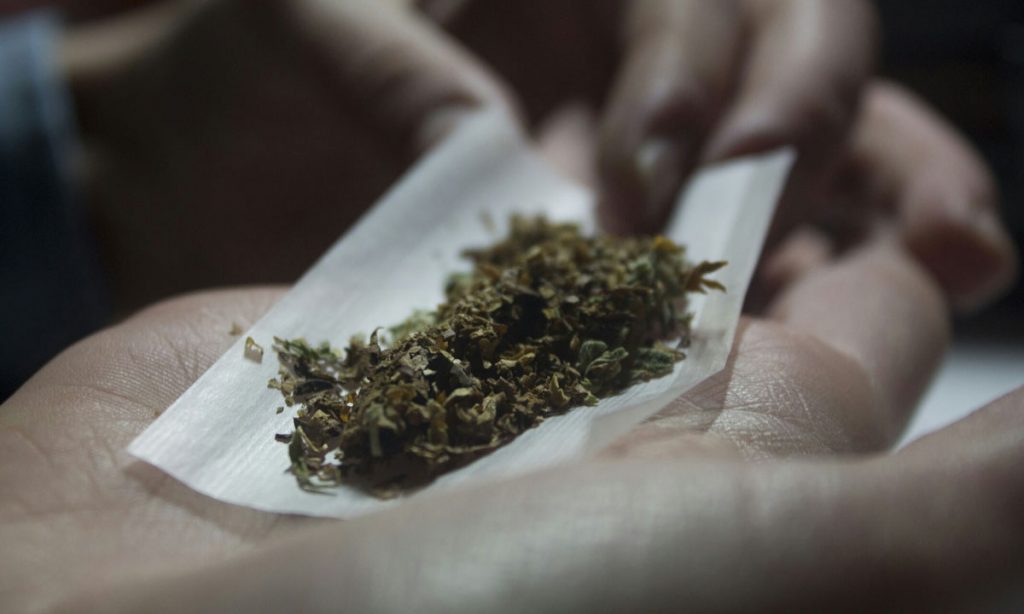
Do you experience withdrawal symptoms when you stop using Cannabis Cold Turkey?
In recent years, the attitude of the majority of people towards cannabis has changed, mostly from negative to positive. In the past, cannabis was often viewed as a potential threat to adolescent substance abuse, giving it a bad rap in various communities.
Many more states have legalized marijuana for both medical and recreational use due to the abundance of positive research, the endless work of marijuana advocates, and so on. Now that cannabis is legal, there has been much debate and discussion among cannabis users and enthusiasts on various cannabis-related topics, including the million-dollar question: is cannabis withdrawal real? And if so, how bad is it?
First, is cannabis addictive? Well, marijuana can be additive; it all depends on how you use it. So if you are not dosed correctly and stop using cannabis abruptly, you may experience what is known as “withdrawal”. In America, reports show that more people (1 in 6) can become dependent on cannabis, especially if they use marijuana before the age of 18.
The symptoms of cannabis withdrawal
Symptoms will tell you if you are experiencing withdrawal and they include:
- Irritability makes the individual feel that something is missing.
- Reduced appetite because marijuana is known to stimulate our appetite.
- Sleep disorders such as insomnia, which can be prolonged
- Chills even when not cold
- headache
- Depressed and anxious feelings
- Loss of concentration and focus
- Constant sweating
- stomach problems
The above symptoms can range from mild – especially for those who use cannabis in small doses – to severe for those who consume it heavily. But the symptoms are not dangerous or life-threatening, yes they are uncomfortable, but you don’t have to fear for your life.
It should be noted that if you smoke marijuana less frequently, you may not experience withdrawal symptoms when you quit smoking. Withdrawal becomes very difficult when the consumer is a regular smoker.
More importantly, the longer you’ve been using marijuana, the more likely it is that your withdrawal process will intensify, thereby worsening your symptoms. So what is causing these symptoms?
The causes of withdrawal symptoms
Withdrawal symptoms from marijuana may not be as severe as withdrawal symptoms from other substances such as alcohol, opioids, cocaine, and heroin. A person’s withdrawal symptoms from using these other substances can be dangerous, so these are completely different from the withdrawal symptoms from marijuana.
Photo by rawpixel.com
Now those who use marijuana are experiencing physical and mental symptoms caused by your body having to adjust to not having a constant supply of delta-9-tetrahydrocannabinol (THC).
The THC compound is a primary psychoactive ingredient in marijuana. So when you smoke marijuana on a regular basis, your brain develops a tolerance for it.
RELATED: Marijuana withdrawal is real: What you need to know
As you smoke more marijuana, your brain begins to depend on your intake of THC, but when you stop smoking, your brain adjusts to not having it. Your body has to adjust to this new non-THC state, and then the uncomfortable symptoms kick in.
Symptoms can become increasingly uncomfortable, leading some people to smoke marijuana again, which increases the problem. Although the problem itself is difficult, going back to marijuana is not a good choice, so we need to understand the concept of effectively treating the symptoms.
Managing and preventing withdrawal symptoms
One of the reasons some people see withdrawal as an arduous process is that they can’t manage it and don’t know how to prevent it. If you want to quit smoking, the first step is to talk to your doctor about the implications of quitting smoking.
 Photo by Irene Rodriguez/EyeEm/Getty Images
Photo by Irene Rodriguez/EyeEm/Getty Images
The doctor or drug specialist may not give you specific instructions on what to do, but it’s a good idea to talk to someone about your decision first. The person will inspire and support you in your transition while holding you accountable.
RELATED: Is Marijuana Addictive? let’s discuss
People choose to quit smoking marijuana for a variety of reasons. However, if you smoked regularly before deciding to quit, it will take a while before you transition to a marijuana-free life. On the other hand, if you smoke less, you can quit altogether without feeling the need for extra support.
These withdrawal management tips will help you in the first 24-27 hours:
Get the right people around you who understand how important it is to you to quit. You should inform and get friends, family members and other people in your life to help you get through this phase.
Exercise is also helpful. If you can exercise up to 30 minutes a day, you’ll get a natural mood boost that aids in the removal of toxins.
 Photo by Bruno Nascimento via Unsplash
Photo by Bruno Nascimento via Unsplash
Always eat healthy foods that provide your body with a constant supply of nutrients and minerals. So opt for fresh fruits, lean proteins and vegetables. If you have been consuming junk food, now is a good time to stop as such processed foods make you feel sluggish.
RELATED: Cannabis Withdrawal: How Bad Is It Really?
Hydration is also crucial as drinking enough water during this time will help you. Please avoid soda, sugary and caffeinated drinks.
If you can survive the first 24-72 hours, you will do better with your withdrawal experience.
Helpful steps you can take when dealing with withdrawal symptoms
Join support groups and take therapy seriously because you will need other people to help you cope.
Detox centers are short-term programs that help people go through this post-marijuana process.
If you don’t feel perfect after these steps, please go to a rehabilitation center for help.
Be patient with the process and DO NOT consider relapsing into marijuana.
bottom line
Withdrawal symptoms that occur when quitting marijuana will not always be severe for everyone. In addition, the marijuana withdrawal symptoms are milder than those you might experience with other substances like cocaine and heroin. The symptoms are not dangerous and some of the symptoms stop within the first 72 hours after stopping. Finally, you may also need a therapist or someone to hold you accountable throughout the process.
This article originally appeared on Cannabis.net and has been republished with permission.

Post a comment: